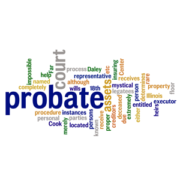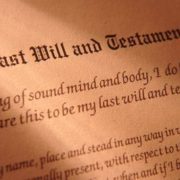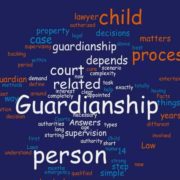T.O.D. Designations to Avoid Probate
Baron Law LLC, Cleveland, Ohio, offers information for you to reflect upon while you are setting out looking for an estate planning attorney to help protect as much of your assets as you can. For more comprehensive information contact Baron Law Cleveland to draft your comprehensive estate plan to endeavor to keep more of your assets for your heirs and not hand them over to the government by way of taxes.
One of the more common topics posed to Ohio estate attorneys always concerns how to avoid probate and the accompanying costs of going through a probate administration. Namely, can an individual transfer property, particularly a martial home, and avoid probate without using more intensive estate planning tools? In many situations trusts afford more control and security over estate assets but for smaller estates, T.O.D. designations can fill a critical role and affording surviving family members partial peace of mind when a loved one passes. Talk to a local Ohio estate attorney to find out if a trust-based strategy or hybrid trust/T.O.D. plan would work best for your situation.
What is a T.O.D. designation?
At the most basic level, transfer on death “T.O.D.” designations are a way to transfer real and certain personal property to named beneficiates at the moment of death. The law construes the transfer as occurring just prior to death so the property is conveyed independent from the probate process. Thus, if the property isn’t a part of the probate estate, it normally isn’t subject to all the claims and debts of the decedent’s estate.
T.O.D. designations are usually seen with bank accounts, real estate, and automobiles and, as such, the processes for using T.O.D.’s for these types of property are well established. Which is good, because usually these types of assets represent the lions share of an estate. Contract a Cleveland area attorney to find out if, and how, T.O.D. designations can be used to save you thousands in estate fees and administration costs.
Why would I use a T.O.D. designation?
As previously stated, the major benefit of using a T.O.D. is probate avoidance. Thus, the property usually isn’t subject to debts and creditors of the estate and the property isn’t tied up for months while the affairs and accounting of the estate are concluded. Most, if not all, beneficiaries and heirs want their property as soon as possible.
It is important to note, however, that a T.O.D. designation has no effect on the present ownership of the associated property and any beneficiary of a T.O.D. has no rights or interest in the property during the owner’s lifetime.
The owner of the T.O.D. designation can change or revoke such designation at any time by executing and filing/recording a new designation. A T.O.D. transfer, however, does not eliminate the need to pay applicable federal estate taxes. Further, beneficiaries of a T.O.D. should be aware of the tax consequences of accepting a T.O.D bequest. Contacting a knowledgeable Ohio probate attorney can appraise you of any unforeseen tax liabilities.
How to do I do a T.O.D. designation?
For Land:
Per O.R.C. § 5302.222, “The transfer of a deceased owner’s real property or interest in real property as designated in a transfer on death designation affidavit…shall be recorded by presenting to the county auditor of the county in which the real property is located and filing with the county recorder of that county an affidavit of confirmation executed by any transfer on death beneficiary to whom the transfer is made. The affidavit of confirmation shall be verified before a person authorized to administer oaths and shall be accompanied by a certified copy of the death certificate for the deceased owner.”
In normal language, fill out, sign, notarize, and record the T.O.D. affidavit with the desired number of beneficiary designations then fill with a county recorder in the county where the property is located. There is no limit to the amount of primary and contingent beneficiaries you can put on a T.O.D. affidavit. Naturally, the more you put, the less proportion each will receive, and type of tenancy conveyed, and primacy of conveyance can all be specified as well and is dependent on the type of beneficiary status and land interest conveyed. For example, if you put that beneficiaries take as joint tenants, all beneficiaries will have rights to the whole by virtue of being joint tenants, regardless if the affidavit further specifies proportional bequests.
Model T.O.D. affidavits can be found online and on such forms, there is a predetermined section in which you can add any number of beneficiaries, respective ownership proportion, and type of ownership. However, in the absence of tenancy specification, named T.O.D. beneficiaries take as tenants in common. Per § O.R.C. 5302.23 (B)(1), “If there is a designation of more than one transfer on death beneficiary, the beneficiaries shall take title to the interest in equal shares as tenants in common, unless the deceased owner has specifically designated other than equal shares or has designated that the beneficiaries take title as survivorship tenants, subject to division (B)(3) of this section. A tenancy in common presents different issues regarding survivorship and concurrent ownership. Contact a local Ohio estate attorney to find out what type of tenancy fits bests for your property and family situation.
For Cars:s:
The Ohio BMV has its own process for T.O.D. designations. Individuals who are the sole owner of a motor vehicle, watercraft, or outboard motor can elect to designate one or more beneficiaries to an Ohio title. To do so, the owner fills out, signs, notarizes BMV form 3811, Affidavit to Designate a Beneficiary, then files such with the county title office where the vehicle is located. Beneficiaries can be individuals, corporations, organizations, trusts, or other legal entities. After the form is properly filed and accepted, a new title is issued with the T.O.D. designation on record. An Ohio estate attorney can assist you in gathering the required forms and documents and make sure the are filled out and filed properly.
To effectuate a T.O.D. transfer, the designated beneficiary brings to the title office, of the county in which the vehicle is located, the Ohio title, a certified copy of the death certificate, BMV form 3774, government-issued identification card, and adequate payment for title fees.
T.O.D. designations are becoming a more popular tool in estate planning to save on estate administrating costs and simplify one’s estate. Granted, T.O.D. may potentially save on costs, however, they afford no protection against creditors and debts during the lifetime of the owner and afford no control after the death. Using T.O.D.’s may seem simple, however, in application transferring significant assets seldom ever is. A knowledgeable Ohio estate attorney is in the best position to advise on the costs and benefits of using T.O.D.’s in an estate plan.
You don’t have to be rich to protect what you’ve spent a lifetime trying to build. To find out whether a trust is right for your family, take the one-minute questionnaire at www.DoIneedaTrust.com. There are a number of different trusts available and the choices are infinite. With every scenario, careful consideration of every trust planning strategy should be considered for the maximum asset protection and tax savings. For more information, you can contact Mike Benjamin of Baron Law LLC at 216-573-3723. Baron Law LLC is a Cleveland, Ohio area law firm focusing on estate planning and elder law. Mike can also be reached at mike@baronlawcleveland.com.
Helping You And Your Loved Ones Prepare For The Future
About the author:
Mike is a contracted attorney at Baron Law LLC who specializes in civil litigation, estate planning, and probate law. He is a member of the Westshore Bar Association, the Ohio State Bar Association, the Cleveland Metropolitan Bar Association, and the Federal Bar Association for the Northern District of Ohio. He can be reached at mike@baronlawcleveland.com.
Disclaimer:
The information contained herein is general in nature, is provided for informational and educational purposes only, and should not be construed as legal or tax advice. The author nor Baron Law LLC cannot and does not guarantee that such information is accurate, complete, or timely. Laws of a particular state or laws that may be applicable in a given situation may impact the applicability, accuracy, or completeness of the preceding information. Further, federal and state laws and regulations are complex and subject to change. Changes in such laws often have material impact on estate planning and tax forecasts. As such, the author and Baron Law LLC make no warranties regarding the herein information or any results arising from its use. Furthermore, the author and Baron Law LLC disclaim any liability arising out of your use of, or any financial position taken in reliance on, such information. As always consult an attorney regarding your specific legal or tax situation.












